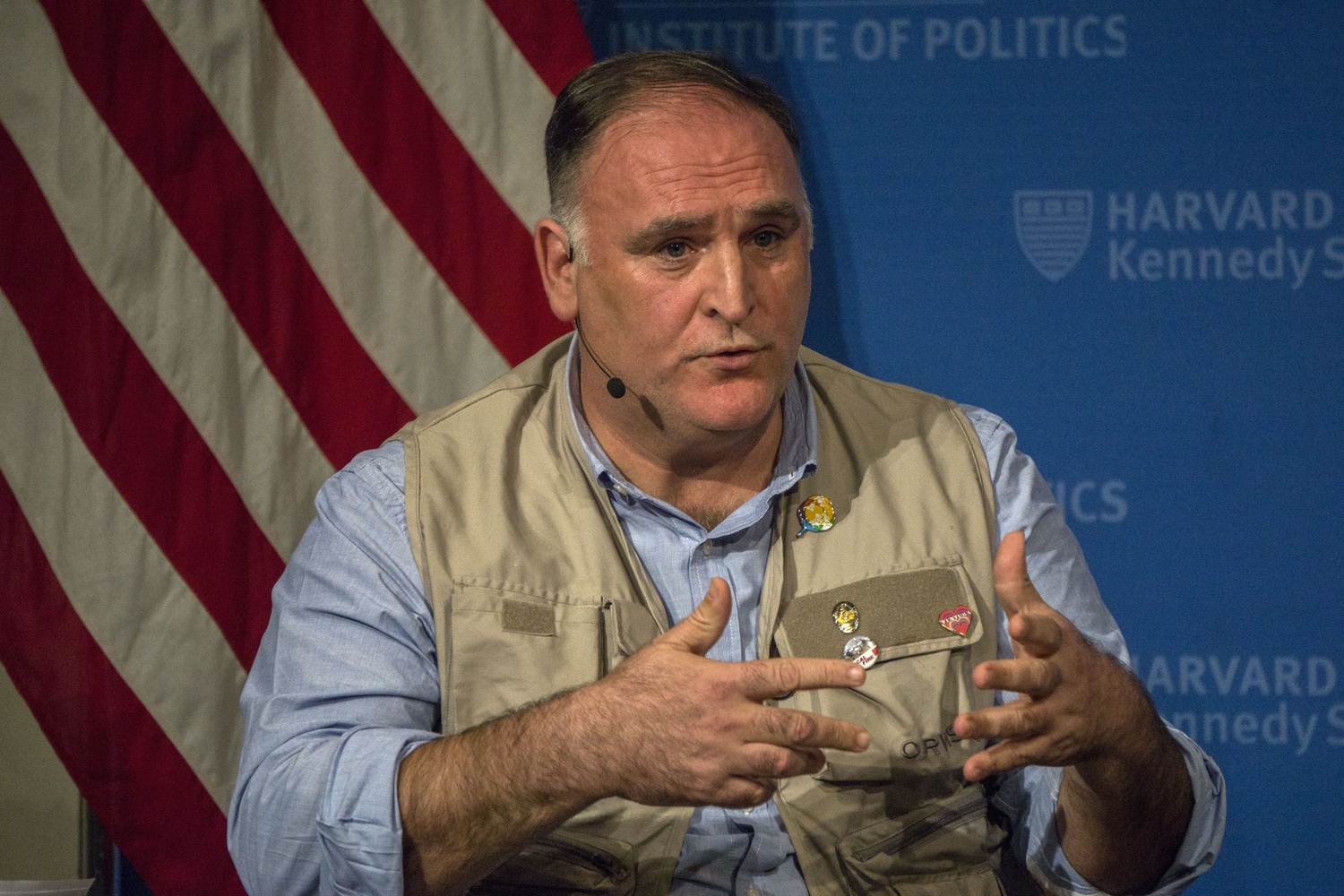
News
Pro-Palestine Encampment Represents First Major Test for Harvard President Alan Garber

News
Israeli PM Benjamin Netanyahu Condemns Antisemitism at U.S. Colleges Amid Encampment at Harvard

News
‘A Joke’: Nikole Hannah-Jones Says Harvard Should Spend More on Legacy of Slavery Initiative

News
Massachusetts ACLU Demands Harvard Reinstate PSC in Letter

News
LIVE UPDATES: Pro-Palestine Protesters Begin Encampment in Harvard Yard
Humanitarian Chef José Andrés Advocates for Puerto Rican Relief

Michelin star chef and humanitarian José Andrés discussed the importance of providing aid to Puerto Rico in the aftermath of Hurricane Maria at an Institute of Politics panel Tuesday.
Andrés joined the former Secretary of Homeland Security, the Vice President of Disaster Operations and Logistics for the Red Cross, and the Director of Emergency Management for Walmart to discuss national responses to natural disasters in 2017 at the panel.
In 2010, Andrés founded the nonprofit World Central Kitchen to build restaurants, bakeries, and schools in Haiti following the Jan. 2010 earthquake.
After Hurricane Maria hit Puerto Rico last September, Andrés said he flew to the island to build a network of 18 restaurants and provide more than 2 million meals throughout the approximately four months his team was there. His organization fed more people in Puerto Rico than the Red Cross, Salvation Army, or any government agency, according to the New York Times.
“You got the sense that there was no centralized leadership,” Andrés said in an interview after the panel. “I would say that. Not that I like centralized leadership.”
With the help of over 10,000 volunteers, Andrés said he tackled a disaster “of biblical proportions.”
Andrés said he and his team fed hospitals, the National Guard, and even the most remote areas of the island. He and his team prepared six different menus everyday with items including traditional Puerto Rican meals like pastelón de carne—a type of meatloaf—and sancocho—a beef stew—as well as sandwiches and fruit.
“We became the biggest buyer of fruit on the island for a couple of months,” Andrés said. “We were getting loads of apples, of oranges; we always tried to deliver one or two pieces of fruit with every meal.”
Andrés said he and his team would often go to extreme lengths to provide food to all parts of the island.
“I was crossing a river with a tray of chicken because the bridge went down in the water and it was no easy river to cross, and I fell back and the chickens survived,” Andrés said. “I was proud of that. I mean, a chef cannot lose his food, but I don’t want to brag about it.”
“I lost two satellite phones but I saved the chickens,” he added.
Andrés and the panelists also emphasized the improvements that still need to be made to the national response to the disaster in Puerto Rico.
Jeh Johnson, the former secretary of Homeland Security under President Barack Obama, said Hurricane Maria hit Puerto Rico at an inopportune time on the heels of disasters like Hurricane Harvey, which hit Texas late last August. Still, he said the island should not have been overlooked.
“It’s an island; it’s not an excuse,” Johnson said.
Andrés said he worried there was a lack of adequate thought given by government agencies to an environment where people are in desperate need of food. For instance, he said that in one case, Puerto Ricans were sent rice and beans without any method of cooking them.
“Someone is not thinking about those details that mean the difference between life and death,” Andrés said. “A guy at the FBI doesn’t know where the shop is, but the cook does.”
Andrés encouraged people to travel to the island as a way to help restart the Puerto Rican economy.
“Show up on vacation because the industry needs to come back and there is enough infrastructure to have a good time,” he said. “Even if it’s one dollar, donate to the search and donate to the small NGOs that you feel are doing a good job on the island.”
.
Want to keep up with breaking news? Subscribe to our email newsletter.
